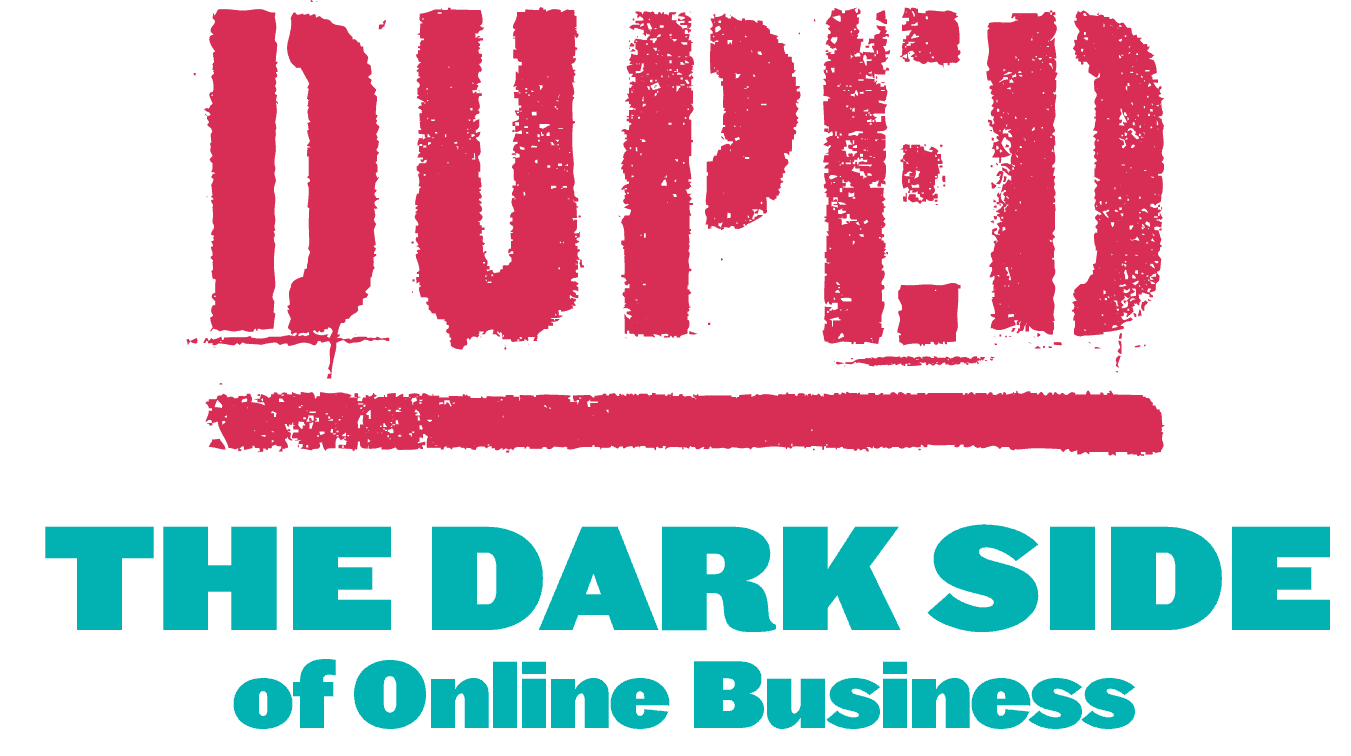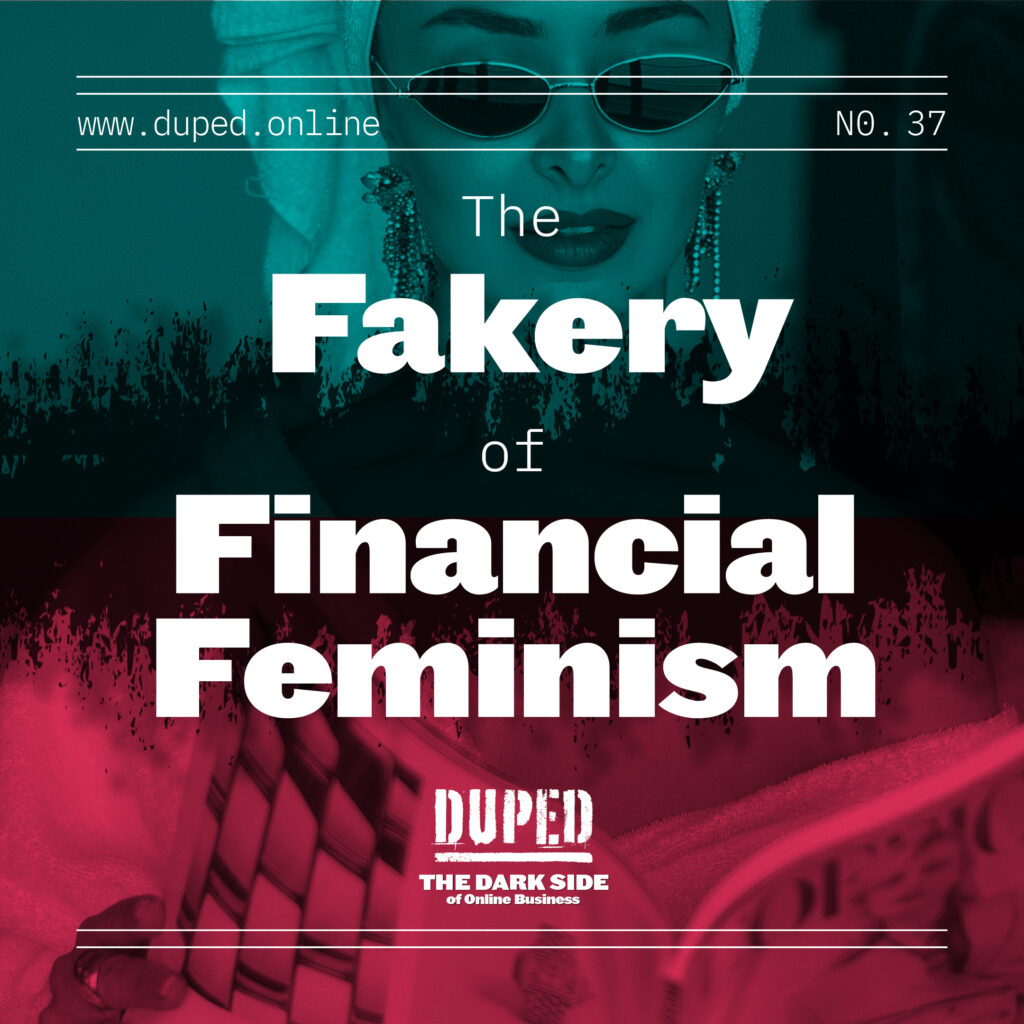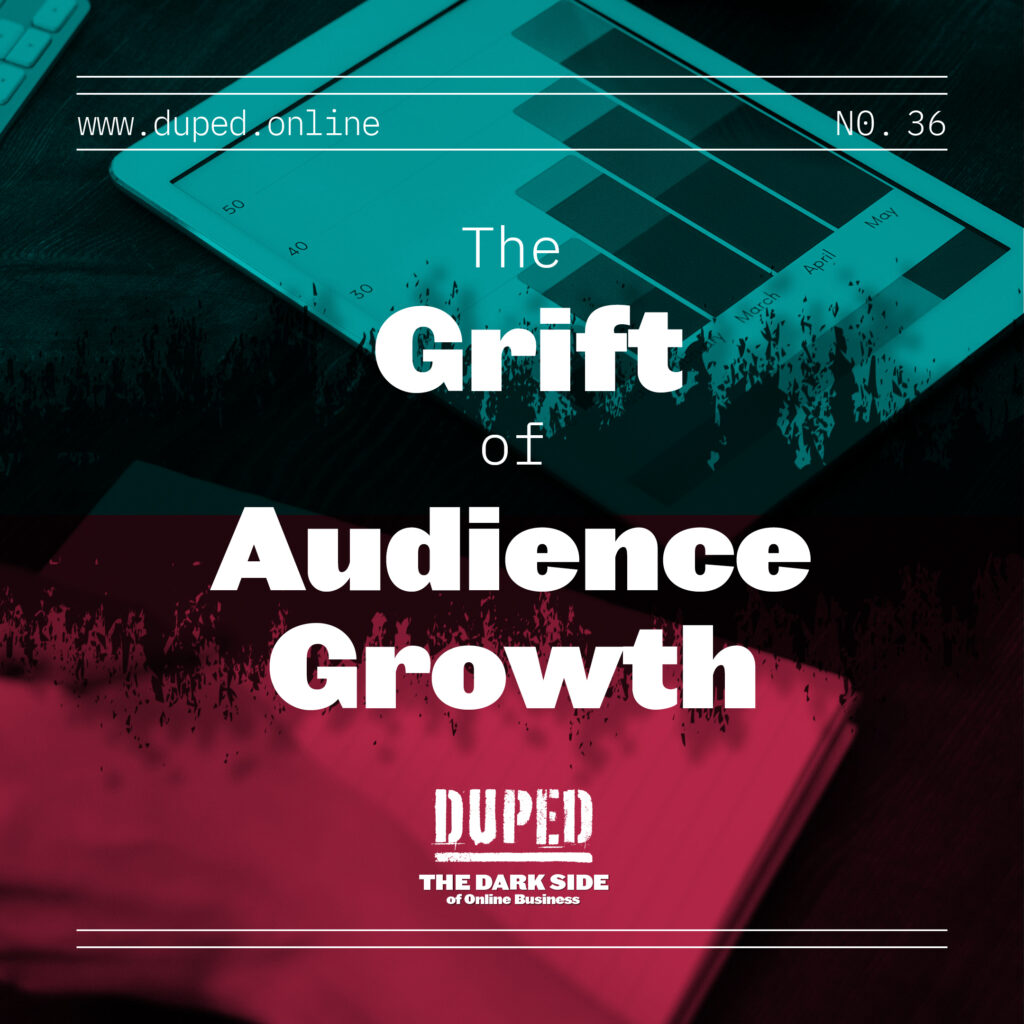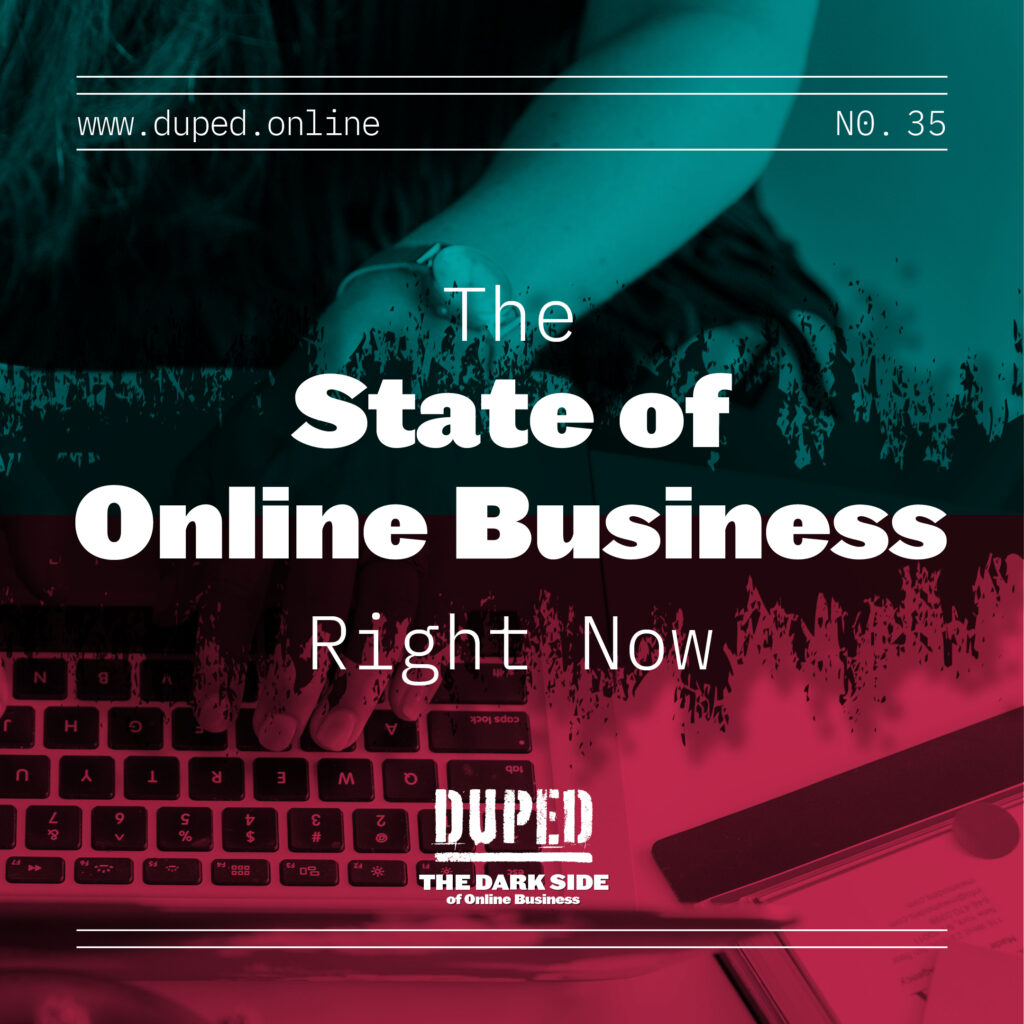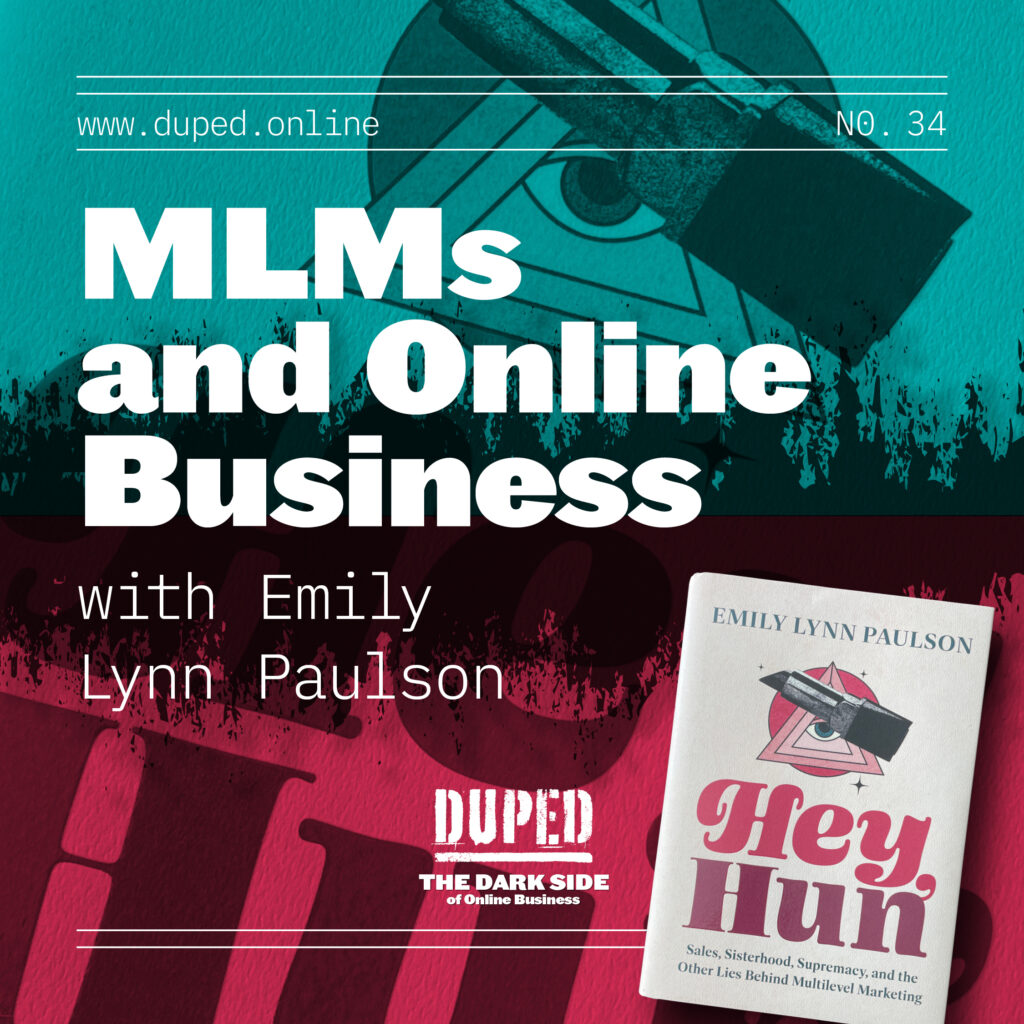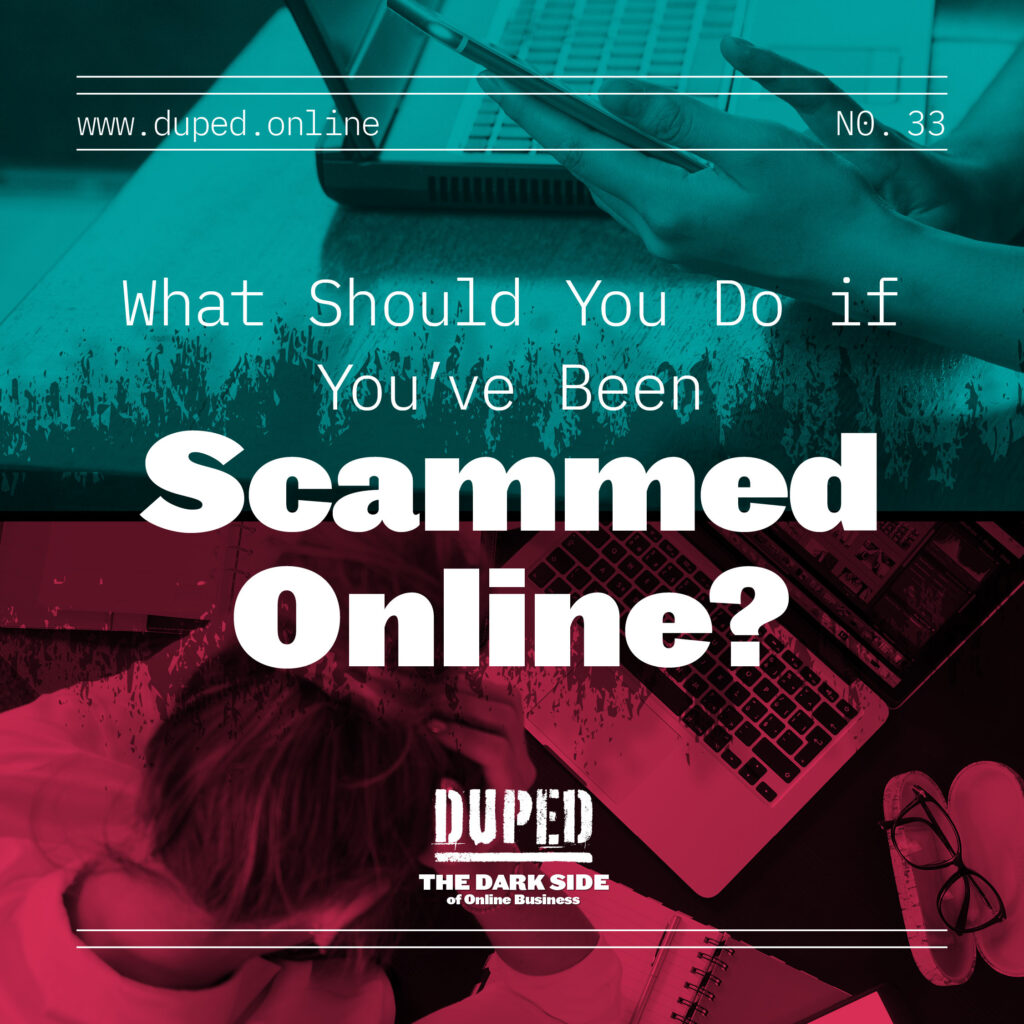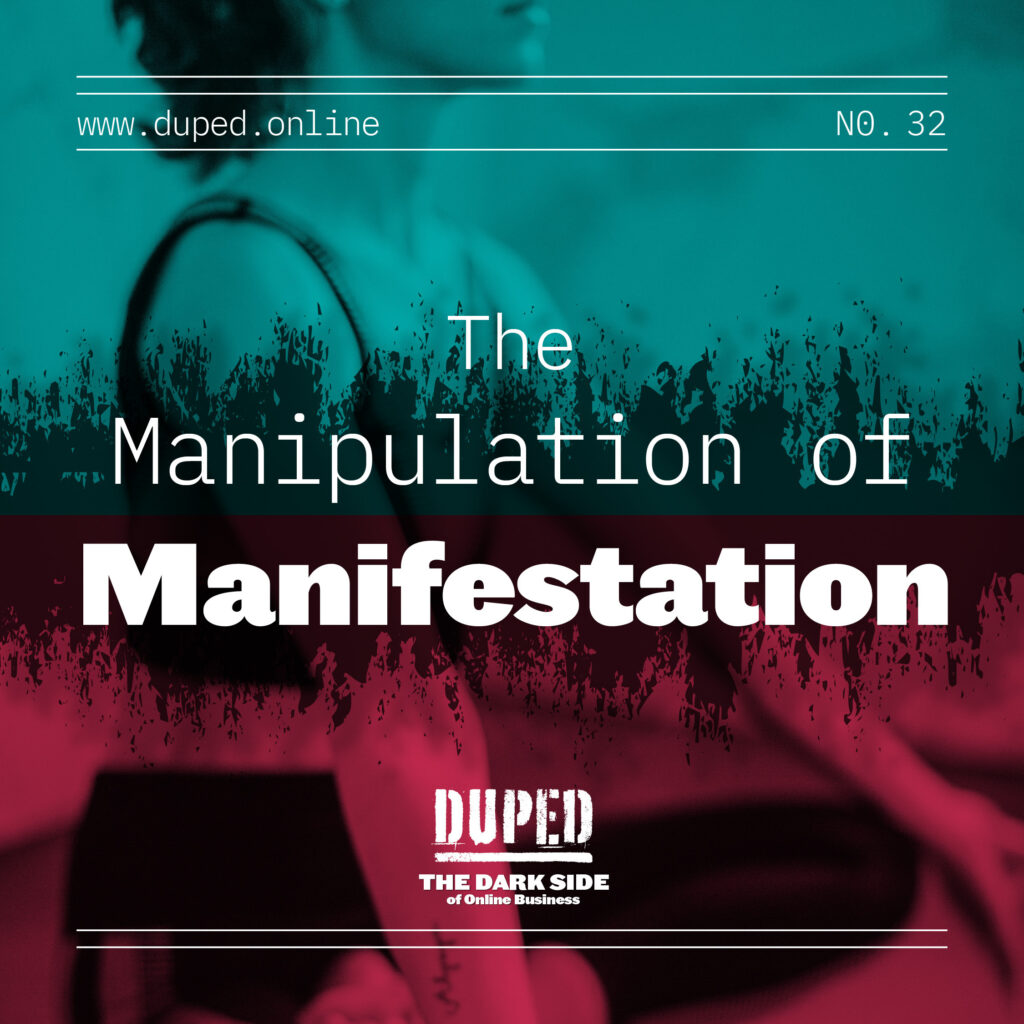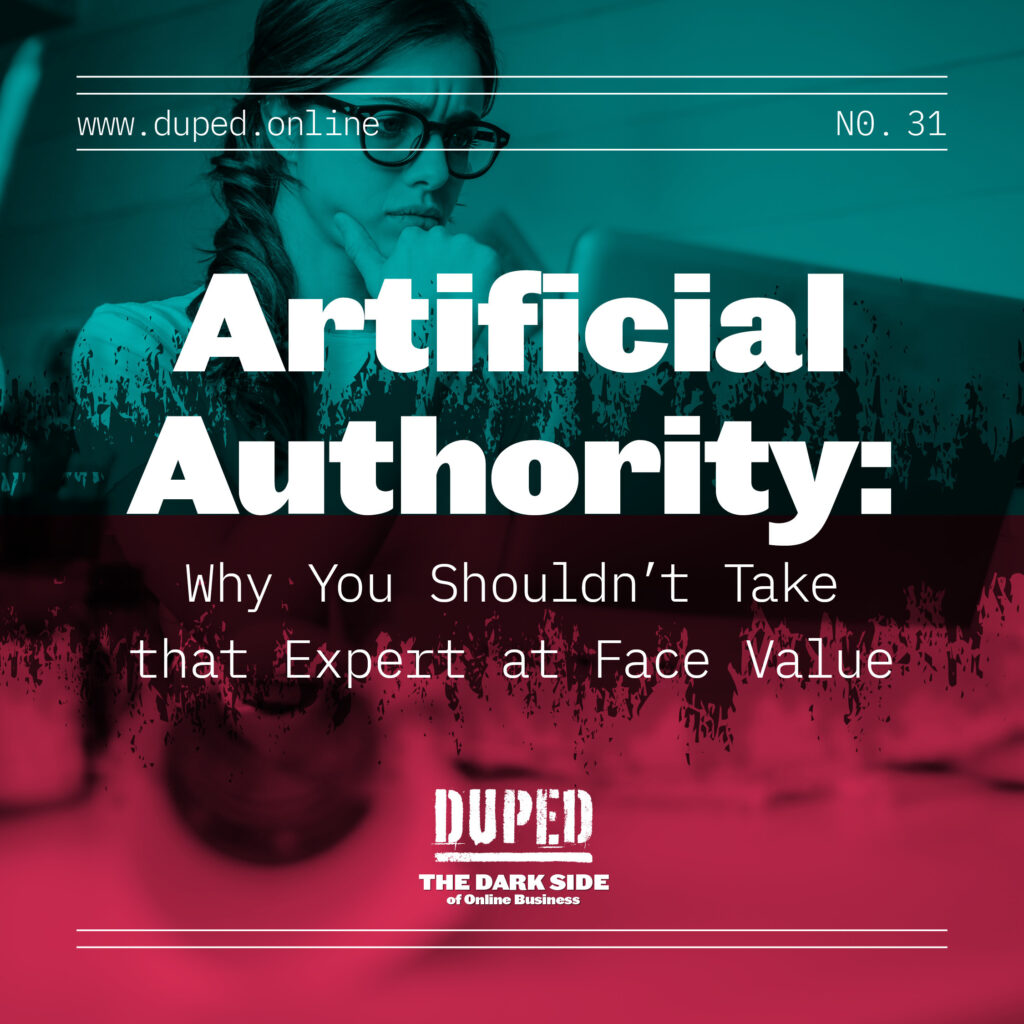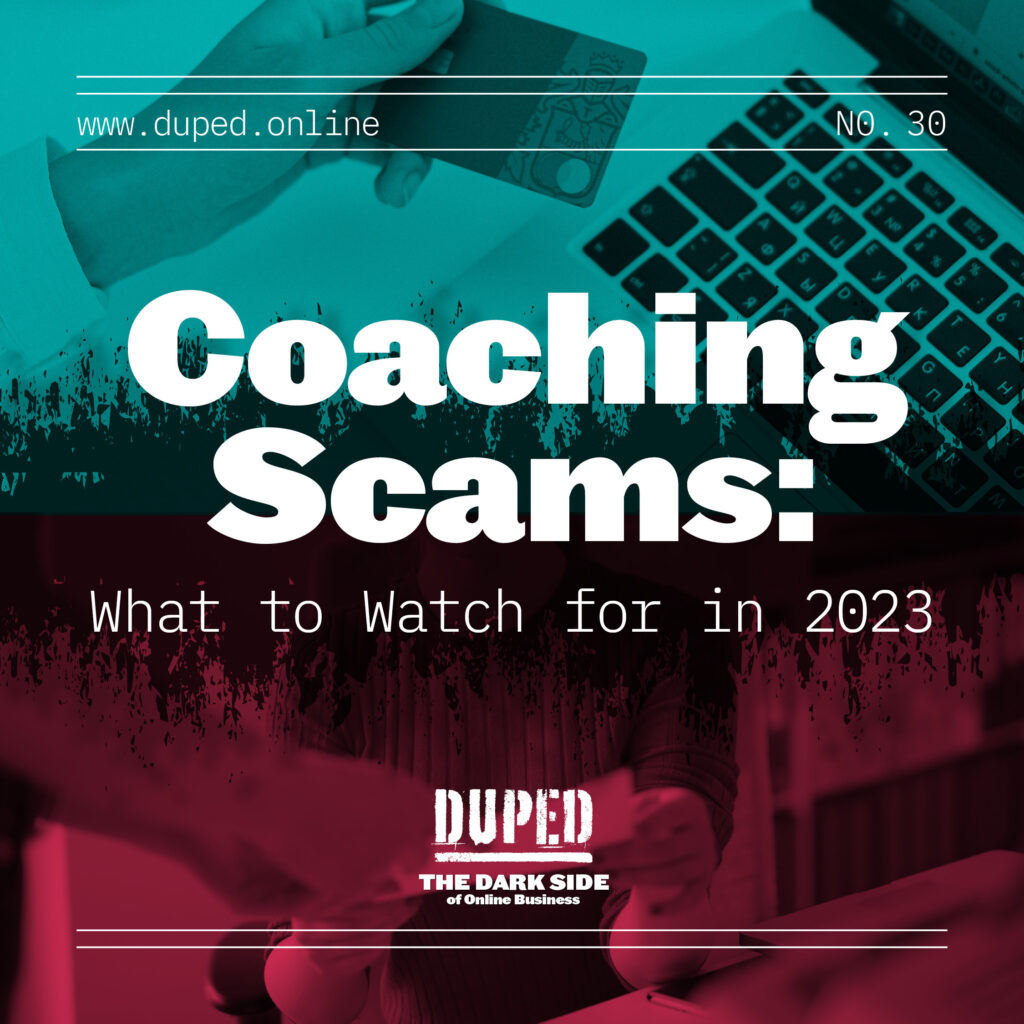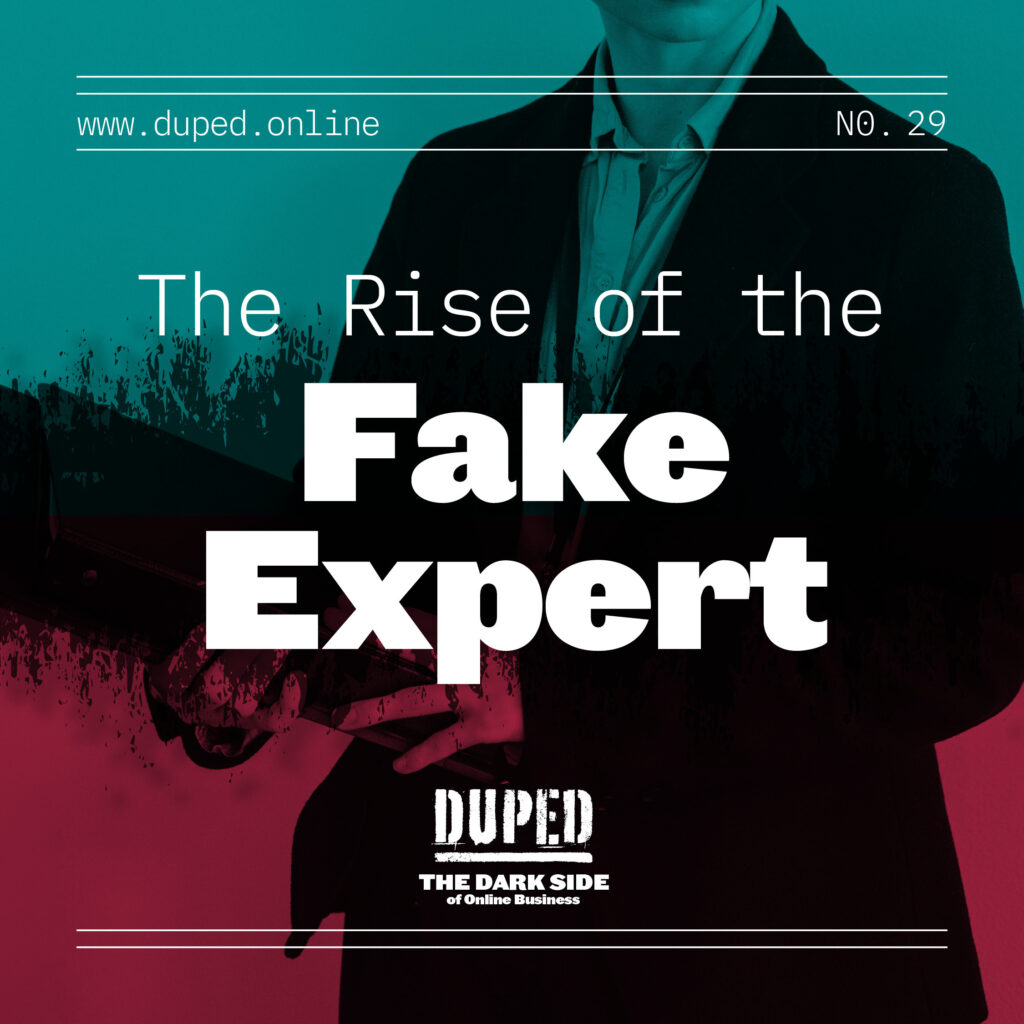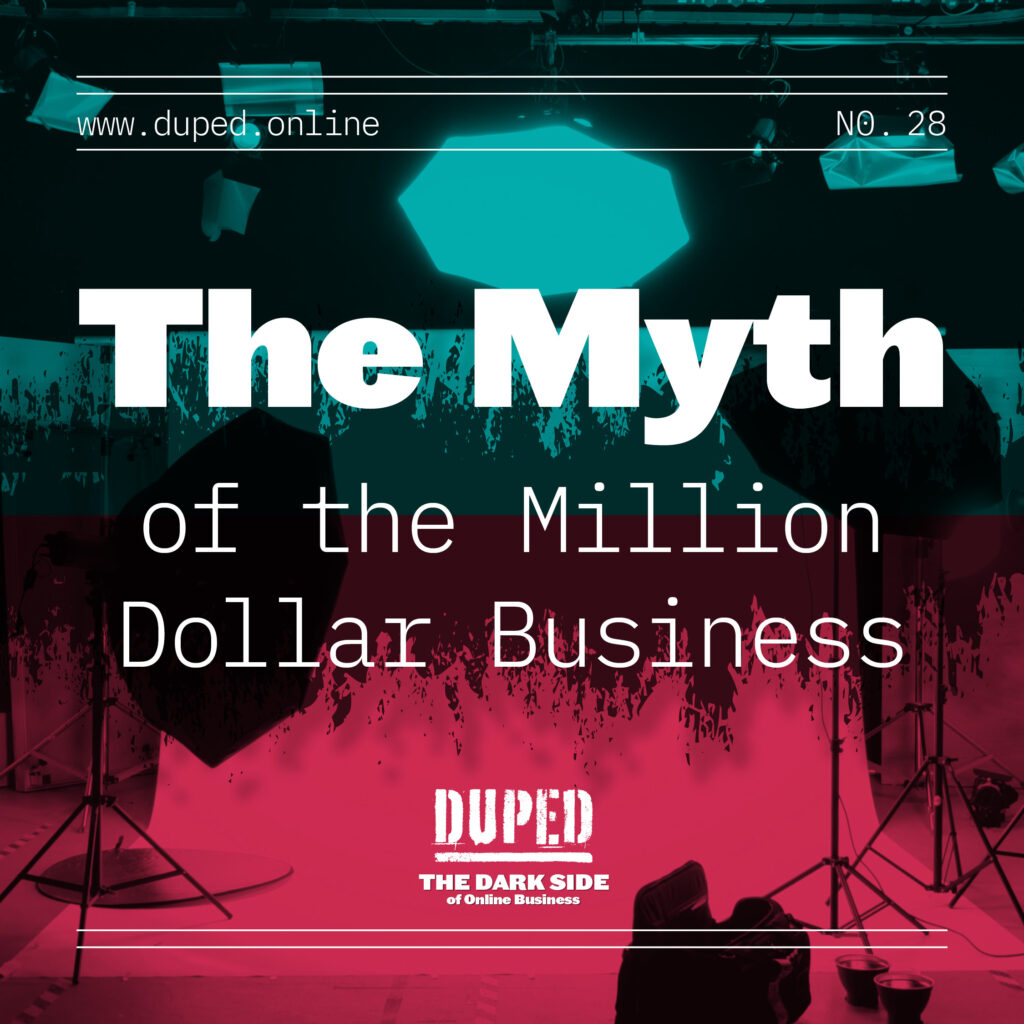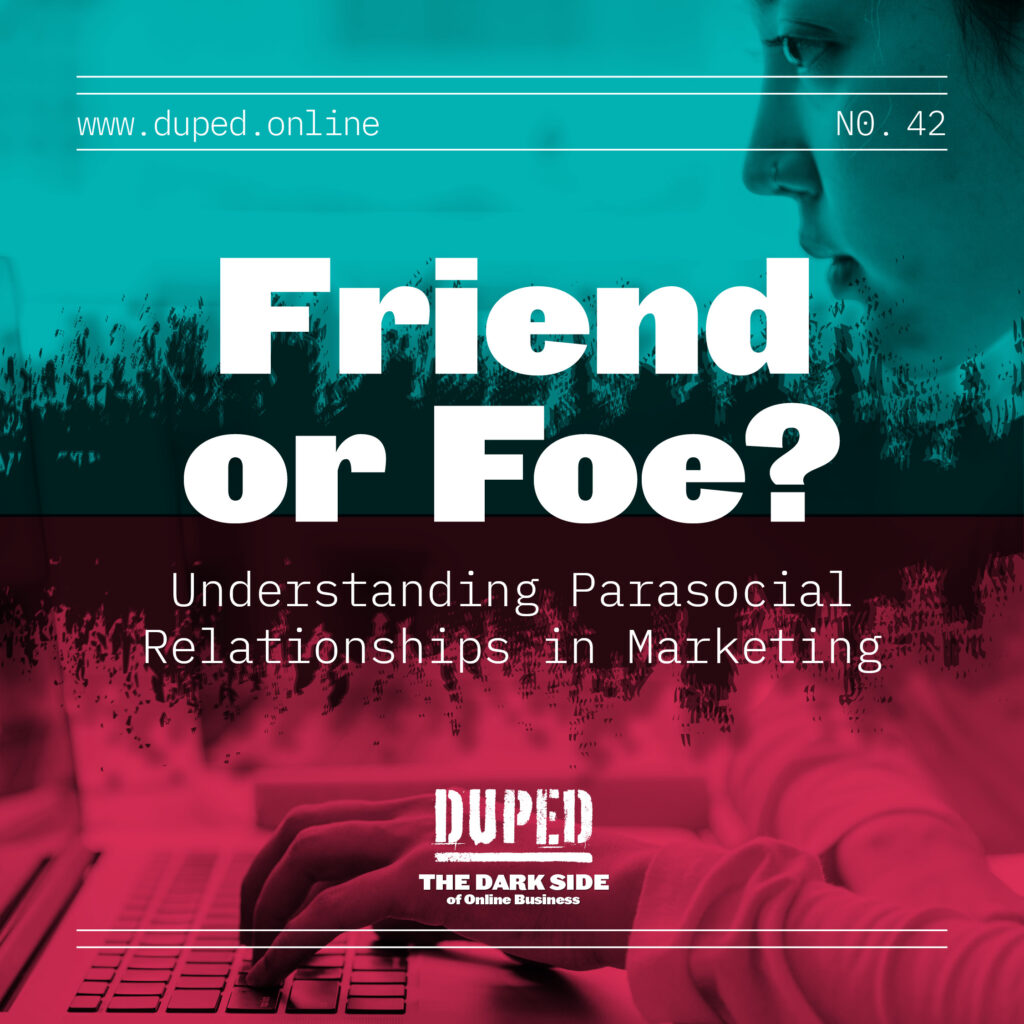
Friend or Foe? Understanding Parasocial Relationships in Marketing
It’s time for another very nuanced episode of Duped!
Before we talk about what parasocial relationships are, how they can be weaponized, and why that matters to you as a consumer, I just want to say that in this day and age, it’s nearly impossible for you NOT to create parasocial relationships.

If you publish content or have an audience filled with people you don’t know personally, you create parasocial relationships. There’s nothing wrong with it, but as a consumer you need to be aware that you’re in these relationships. As they form quite naturally.
Let’s start with some definitions.
What is a Parasocial Relationship?
Two mass communication researchers, Horton & Wohl, coined the term parasocial interaction in 1956. The study of these relationships recently moved from mass communication to psychology.
A parasocial relationship is a one-sided relationship formed when one party extends energy, interest, and time and the other person doesn’t know they exist, according to the National Register of Health Services Psychologists.
A parasocial relationship typically forms with celebrities, sports stars, television characters, journalists, and politicians,
But in the age of social media, more and more people are having parasocial relationships with people they follow online.
Robert MacDougal wrote in 2012 that podcasts “enhance the personal feel”. And author Wil Williamson in 2019 wrote that podcasts have an “everyman” feel since anyone can start a podcast plus the conversational nature makes it feel more like a two-way friendship. People feel like they are having a coffee with Maggie and Michelle and seeing the inner workings of our friendship.
There’s nothing unhealthy or wrong with these relationships, but we should all know that we are in them.
That the online business owner, celebrity, or rock star doesn’t owe us a damn thing. It’s a one-way street; as consumers, we should keep that in mind (more on that in a moment).
How Parasocial Relationships are Cultivated in Online Business
This means we wanted to talk about Taylor Swift for a moment. Now, we are not Swifties, but a very observant Swiftie on Reddit made a compelling case for how Swift creates parasocial relationships.
- “Publishing her personal journal pages in the four different versions of the Lover album.
- Inviting fans to her house for Secret Sessions to listen to her albums before release dates.
- This direct quote from the Eras Tour in Tampa: “I’m really loving this tour. It’s become my entire personality and I’ve always loved putting on shows, always loved that connection… Knowing you have felt the same way… I need you guys very much for my well-being.”
- The Fearless TV announcement. “This was the musical era in which so many inside jokes were created between us, so many hugs exchanged and hands touched, so many unbreakable bonds formed, so before I say anything else, let me just say that it was a real honor to get to be a teenager alongside you…”
- Leaving secret messages in the liner notes of her physical CDs and the eventual TS culture of Easter Eggs.”
The writer concludes, “Taylor has intentionally made it possible for her fans to know more about her than she will ever know about us.”
That relationship fuels sales of her albums, tickets, and merch. Tay Tay is a great marketer as well as a great artist!
How Do Online Business Owners Cultivate Parasocial Relationships?
According to the research and one study by Smith et. al (2007) first published in the Journal of Advertising research that I found on Wikipedia’s very comprehensive review of parasocial interaction, “Influencers can become experts, similar to celebrities to some extent, and their posts may influence products and brands and affect potential customers, i.e. their followers”
How can we create parasocial relationships online?
- Vulnerability. Taylor publishes her journal and online business owners share the details of their lives from their kids, to their hardships, to what they like to eat.
- Luxury lifestyle, showing us how they live – marketing based on envy.
- “We’re in this together” type rhetoric (it’s a little bit culty).
- Behind-the-scenes tours of the business owner’s life.
The Weaponization of Parasocial Relationships
The question becomes: does parasocial interaction influence buying decisions? YES according to the research.
“Parasocial interaction positively influences consumer purchase decisions (Choi and Lee 2019; Lee and Watkins 2016)”
How? We can ascribe expert status to a celebrity, web celeb, or influencer, e.g., Bitconned documentary. (Reminder: Influencers are not experts folks!)
Cialdini’s book Influence discusses liking is a social trigger that bypasses our ability to think about a buying decision critically:
- Social attractiveness – They are people we want to hang out with and because of their self-disclosure we feel like we are friends
- Familiarity – Repeated exposure enhances the parasocial relationship and we view the person as a trusted source
- Association – We associate the web celeb with an idea and they become top of mind for us
Also, we need to consider the trappings of authority.
We look at people as authorities because they can signal it. Jay Clouse talked about “marketing envy, ” which happens here. We are envious of their audience size or income or lifestyle. We know who they know and hang out with.
Because of all of this, we see them as authorities.
Then, there’s the phenomenon of reciprocity. With all the self-disclosure the web celeb does – it creates an imbalance or reciprocity deficit, and we can feel compelled to pay up on that debt by buying.
Final Thoughts
- Be aware that you are in parasocial relationships with most of the people you follow online and that it impacts your buying decisions. You know these people but they don’t know you or your business.
- Ask yourself “Do I like this person more than I should based on what I know?” If yes, the social trigger of liking can influence your purchasing decision.
- Influencers are NOT experts. Just because they are talking about a product doesn’t mean they know a thing about it
- The reciprocity deficit is real and persuasive. Don’t buy just because someone provides “value” or shares so much with you. Buy because you NEED what they are selling.
Links for this episode:
- Mass Communication and Para-Social Interaction
- Parasocial Relationships: The Nature of Celebrity Fascinations
- Parasocial Interaction
- Podcasters are People: The Intimacy of Medium vs. Parasocial Relationships
- Reddit: Parasocial Relationships and Taylor’s Role In Creating Them
- Duped: That Luxury Lifestyle
- YouTube It Before You Buy It: The Role of Parasocial Interaction in Consumer-to-Consumer Video Reviews
- Bitconned
- Influence: The Psychology of Persuasion by Robert Cialdini
- Swipe Up For More by Stephanie McNeal
- This is Mallory – Happy Bum Saga
- Maggie’s Podcast
- Michelle’s Podcast
Join the

Patreon
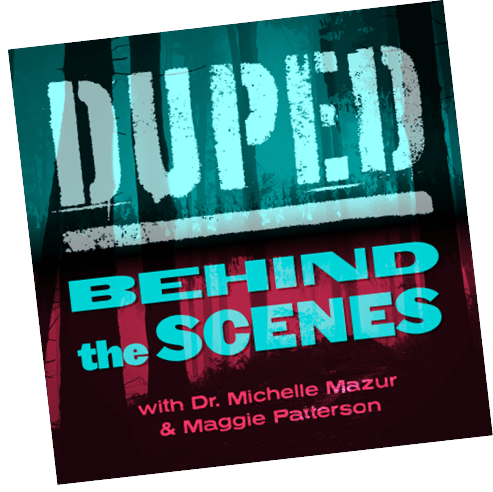
for only $7/month and get a
monthly bonus episode,
behind-the-scenes content
and more.
